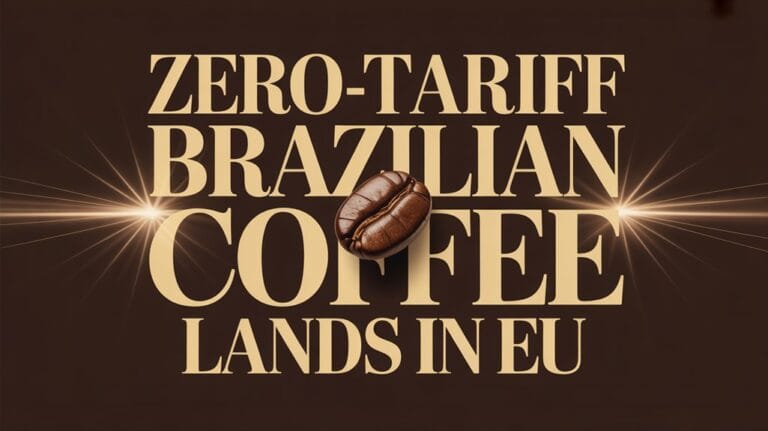Brazilian sugarcane, coffee, and meats are stepping onto French, German, Italian, and Spanish shelves under shiny new Geographical Indication labels. The December 2024 EU-Mercosur Free Trade Agreement cut tariffs on more than 90 percent of goods. This change lets Brazilian agriculture reach EU markets with lower costs and higher value.
The deal protects 357 European products yet also opens doors for Brazil’s own Geographical Indication brands. Terroir-backed sugarcane rum from Salinas now faces zero tariffs in Germany. Single-origin coffee from Cerrado Mineiro gains smoother entry into Italian espresso bars. Specialty beef with Vale dos Sinos GI can sell at a premium in Spanish butcher shops. The Arabica coffee produced from this region has highly regarded cup qualities that cater to the premium market, especially noted for its high-quality beans and complex flavor profile.
GI labels let Salinas rum, Cerrado coffee, and Vale beef glide tariff-free into Germany, Italy, and Spain.
Brazil’s size helps. It’s the world’s *third-largest* farm producer and commands 152 million hectares of cropland. High-tech silos and mills raise quality so goods qualify for GI status. Experts expect cereal output to rise 27 percent over the next ten years. Much of that extra supply will head to the same four EU markets hunting for traceable and sustainable foods. 220 million consumers in Brazil itself represent a still largely untapped market for reciprocal EU agri-food exports.
France leads in chocolate and confectionery imports. Germany wants more fruit juices and nuts. Italy keeps growing demand for specialty meats. Spain looks for dairy and fresh fruit. Trade fairs in Paris, Cologne, Milan, and Barcelona already show booths full of GI-branded Brazilian snacks. Savings of EUR 4 billion are expected annually for European exporters once the tariff eliminations take full effect.
The agreement also cuts red tape. Containers of GI-tagged cane sugar or frozen beef now clear customs faster. This speed matters; shoppers pay a premium for freshness and a story they can trust. By matching Brazil’s land efficiency with Europe’s hunger for quality, both sides see a bargain.
Challenges remain. U.S. critics say GI rules clash with existing trademarks. Some EU farmers worry about growing South American competition. Yet, Brazilian officials assert that GI labels protect every place of origin, whether European cheese or Amazonian cupuaçu.
For now, the deal is moving forward, and shoppers across Paris, Berlin, Rome, and Madrid can soon pick up a cup of GI coffee or slice of GI beef that left Brazil just days earlier.

